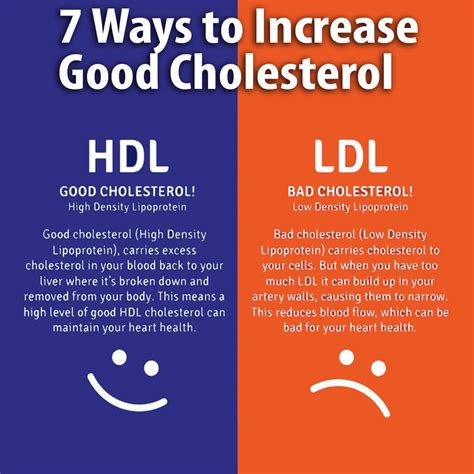How to Raise HDL Cholesterol: Your Guide to a Healthier Heart
High-density lipoprotein (HDL) cholesterol, often called "good" cholesterol, plays a crucial role in heart health. Unlike LDL ("bad" cholesterol), HDL helps remove cholesterol from your arteries, reducing your risk of heart disease and stroke. While medication can be helpful, many lifestyle changes can significantly boost your HDL levels. This guide will explore effective strategies to naturally raise your HDL cholesterol.
Understanding HDL Cholesterol
Before diving into how to raise your HDL, it's important to understand its significance. HDL acts like a cleanup crew, transporting excess cholesterol from your arteries back to your liver where it's processed and removed from your body. Low HDL levels are a significant risk factor for cardiovascular disease. Therefore, increasing your HDL is a proactive step towards protecting your heart health.
Effective Ways to Naturally Raise HDL Cholesterol
Several lifestyle modifications can contribute to higher HDL levels. Consistency is key; making these changes a regular part of your routine will yield the best results.
1. Embrace Regular Exercise
Physical activity is a cornerstone of improving HDL cholesterol. Aim for at least 150 minutes of moderate-intensity aerobic exercise or 75 minutes of vigorous-intensity aerobic exercise per week. This could include brisk walking, jogging, swimming, cycling, or any activity that gets your heart rate up.
2. Maintain a Healthy Diet
Diet plays a critical role in influencing HDL levels. Focus on incorporating these healthy choices:
- Increase your intake of monounsaturated and polyunsaturated fats: These healthy fats, found in avocados, nuts, seeds, and olive oil, are beneficial for raising HDL.
- Prioritize whole grains, fruits, and vegetables: These provide essential vitamins, minerals, and fiber, contributing to overall heart health.
- Limit saturated and trans fats: These unhealthy fats, found in red meat, processed foods, and fried foods, lower HDL levels.
- Reduce refined carbohydrates and added sugars: These can negatively impact cholesterol levels.
3. Manage Your Weight
Being overweight or obese is strongly linked to low HDL cholesterol. Losing even a modest amount of weight can significantly improve your HDL levels. Combine healthy eating with regular exercise for optimal weight management.
4. Quit Smoking
Smoking is detrimental to your cardiovascular health and significantly lowers HDL levels. Quitting smoking is one of the most impactful changes you can make to improve your HDL and overall well-being.
5. Manage Stress
Chronic stress can negatively affect your cholesterol levels. Incorporate stress-reducing techniques into your daily routine, such as yoga, meditation, or spending time in nature.
6. Consider Alcohol Consumption (Moderately)
Moderate alcohol consumption (one drink per day for women, two for men) has been linked to slightly higher HDL levels in some studies. However, it's crucial to consume alcohol responsibly and within recommended limits. Excessive alcohol consumption is extremely detrimental to health. Consult your doctor before making any changes to your alcohol consumption.
7. Regular Check-ups
Regular checkups with your doctor are essential for monitoring your cholesterol levels and overall health. They can provide personalized advice and recommend any necessary medical interventions.
When to Seek Medical Advice
While lifestyle changes are highly effective, some individuals may require medical intervention to manage their HDL levels. Consult your doctor if you have concerns about your HDL cholesterol or have a family history of heart disease. They may recommend medication or other treatments to help improve your lipid profile.
Disclaimer: This information is for educational purposes only and should not be considered medical advice. Always consult with your doctor or a qualified healthcare professional before making any changes to your diet or lifestyle, especially if you have pre-existing health conditions.
